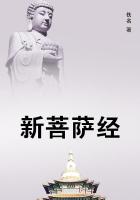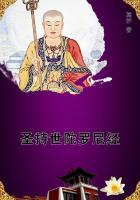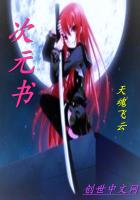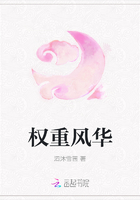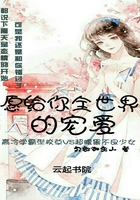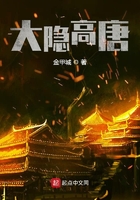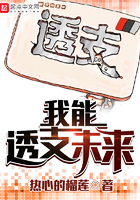It got about that we had a vast room to ourselves, where one might obtain a drink, or a sofa for the night, or even money to cable for money. So, we had many strange visitors, some half starved, half frozen, with terrible tales of the Albanian trail, of the Austrian prisoners fallen by the wayside, of the mountain passes heaped with dead, of the doctors and nurses wading waist-high in snow-drifts and for food killing the ponies. Some of our visitors wanted to get their names in the American papers so that the folks at home would know they were still alive, others wanted us to keep their names out of the papers, hoping the police would think them dead; another, convinced it was of pressing news value, desired us to advertise the fact that he had invented a poisonous gas for use in the trenches. With difficulty we prevented him from casting it adrift in our room. Or, he had for sale a second-hand motor-cycle, or he would accept a position as barkeeper, or for five francs would sell a state secret that, once made public, in a month would end the war. It seemed cheap at the price.
Each of us had his "scouts" to bring him the bazaar rumor, the Turkish bath rumor, the cafe rumor. Some of our scouts journeyed as far afield as Monastir and Doiran, returning to drip snow on the floor, and to tell us tales, one-half of which we refused to believe, and the other half the censor refused to pass. With each other's visitors it was etiquette not to interfere. It would have been like tapping a private wire. When we found John sketching a giant stranger in a cap and coat of wolf skin we did not seek to know if he were an Albanian brigand, or a Servian prince incognito, and when a dark Levantine sat close to the Kid, whispering, and the Kid banged on his typewriter, we did not listen.
So, when I came in one afternoon and found a strange American youth writing at John's table, and no one introduced us, I took it for granted he had sold the Artist an "exclusive" story, and asked no questions. But I could not help hearing what they said.
Even though I tried to drown their voices by beating on the Kid's typewriter. I was taking my third lesson, and I had printed, "IAmm 5w writjng This, 5wjth my own lilly w?ite handS," when Iheard the Kid saying:
"You can beat the game this way. Let John buy you a ticket to the Piraeus. If you go from one Greek port to another you don't need a vise. But, if you book from here to Italy, you must get a permit from the Italian consul, and our consul, and the police. The plot is to get out of the war zone, isn't it? Well, then, my dope is to get out quick, and map the rest of your trip when you're safe in Athens."It was no business of mine, but I had to look up. The stranger was now pacing the floor. I noticed that while his face was almost black with tan, his upper lip was quite white. I noticed also that he had his hands in the pockets of one of John's blue serge suits, and that the pink silk shirt he wore was one that once had belonged to the Kid. Except for the pink shirt, in the appearance of the young man there was nothing unusual. He was of a familiar type. He looked like a young business man from our Middle West, matter-of-fact and unimaginative, but capable and self-reliant. If he had had a fountain pen in his upper waistcoat pocket, I would have guessed he was an insurance agent, or the publicity man for a new automobile. John picked up his hat, and said, "That's good advice. Give me your steamer ticket, Fred, and I'll have them change it." He went out; but he did not ask Fred to go with him.
Uncle Jim rose, and murmured something about the Cafe Roma, and tea. But neither did he invite Fred to go with him. Instead, he told him to make himself at home, and if he wanted anything the waiter would bring it from the cafe downstairs. Then the Kid, as though he also was uncomfortable at being left alone with us, hurried to the door. "Going to get you a suit-case," he explained.
"Back in five minutes."
The stranger made no answer. Probably he did not hear him. Not a hundred feet from our windows three Greek steamers were huddled together, and the eyes of the American were fixed on them. The one for which John had gone to buy him a new ticket lay nearest.
She was to sail in two hours. Impatiently, in short quick steps, the stranger paced the length of the room, but when he turned and so could see the harbor, he walked slowly, devouring it with his eyes. For some time, in silence, he repeated this manoeuvre; and then the complaints of the typewriter disturbed him. He halted and observed my struggles. Under his scornful eye, in my embarrassment I frequently hit the right letter. "You a newspaper man, too?" he asked. I boasted I was, but begged not to be judged by my typewriting.
"I got some great stories to write when I get back to God's country,"he announced. "I was a reporter for two years in Kansas City before the war, and now I'm going back to lecture and write. I got enough material to keep me at work for five years. All kinds of stuff--specials, fiction, stories, personal experiences, maybe a novel."I regarded him with envy. For the correspondents in the greatest of all wars the pickings had been meagre. "You are to be congratulated," I said. He brushed aside my congratulations. "For what?" he demanded. "I didn't go after the stories; they came to me. The things I saw I had to see. Couldn't get away from them. I've been with the British, serving in the R. A. M. C. Been hospital steward, stretcher bearer, ambulance driver. I've been sixteen months at the front, and all the time on the firing-line. I was in the retreat from Mons, with French on the Marne, at Ypres, all through the winter fighting along the Canal, on the Gallipoli Peninsula, and, just lately, in Servia. I've seen more of this war than any soldier. Because, sometimes, they give the soldier a rest; they never give the medical corps a rest. The only rest Igot was when I was wounded."

